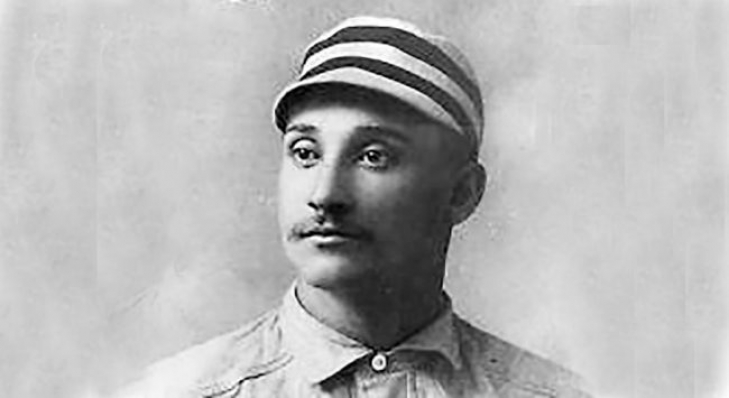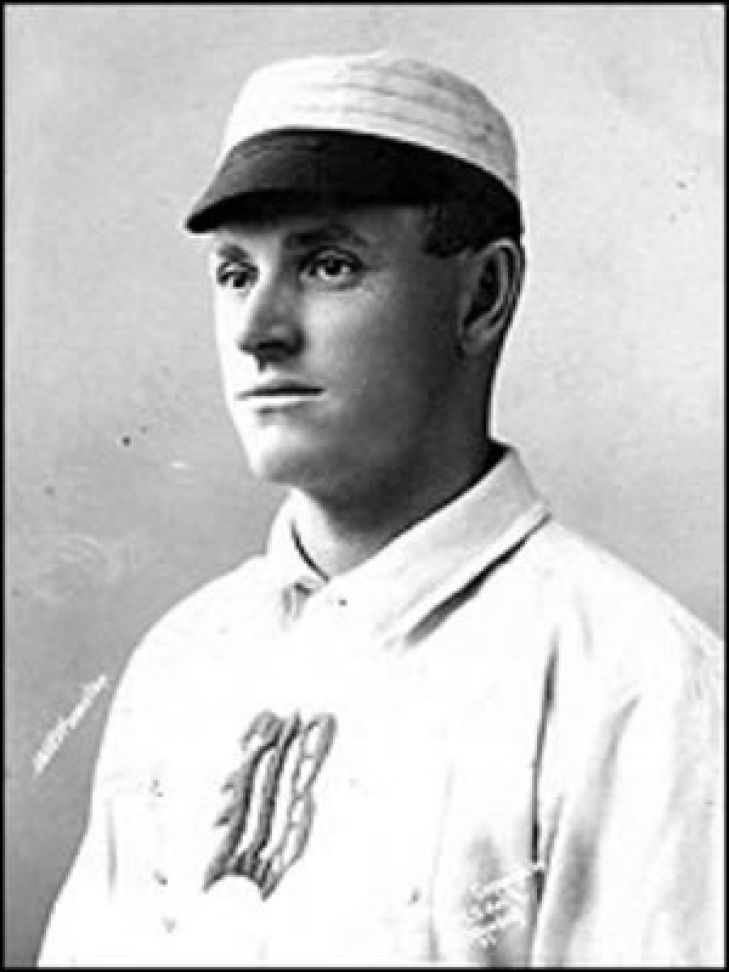Warning: Attempt to read property "params" on null in /home/notinhal/public_html/plugins/k2/k2canonical/k2canonical.php on line 382
273. Fred Tenney
We don’t talk enough about excellent fielding First Basemen, but if you are going to start with one, chronologically speaking, that is, Fred Tenney is the perfect place to start.
212. Jack Stivetts
“Happy” Jack Stivetts made his big league debut back in 1889 for the American Association's St. Louis Browns. It was an exciting rookie year, as he only had a 12-7 record, but he led that league in ERA (2.25), ERA+ *186), FIP (2.93), WHIP (1.153), and SO/BB (2.10).
260. Herman Long
Herman Long had 1,096 Errors over his career, which is more than anyone else. It is an unbreakable record, but he did that in a time where errors were more easily given, and he was a player who was fearless in doing what was needed to stop the ball from getting past the infield. This means that Long had incredible range, and his Defensive bWAR was very good, so despite the Errors, we have one of the best defensive players of his day.
50. Bobby Lowe
Bobby Lowe played for the Boston Beaneaters for twelve seasons where he was known for his steady play both with his bat and his glove. Playing in the 1890’s you wouldn’t expect much of a power game and while Lowe was not one to break that mold, he did have a game for the ages in 1894 when he collected four Home Runs in a Game making him the first baseball player to ever do so. That was a year where he had a career high in Home Runs (17), Batting Average (.346) and On Base Percentage (.401) and had there been an MVP award that year he would have received a handful of votes for certain.
36. Ezra Sutton
41. John Morrill
49. Jimmy Collins
Jimmy Collins did a lot of things beautifully on the baseball diamond that may not be considered sexy but it they went noticed and he generated a Hall of Fame career out of it, which included five seasons with the Boston Beaneaters.
44. Charlie Buffinton
Charlie Buffinton began his career with the Boston Red Stockings in 1882 and in the following year when the team renamed themselves the Beanaters Buffinton became a star Pitcher where he would win 20 Games each year from 1883 to 1885. The sinkerball specialist had an incredible 1884 campaign where he went 48 and 16 with a 2.15 ERA and he was third overall in bWAR for Pitchers. It should also be mentioned that Buffinton was a good hitter who would bat .255 for Boston over his career. Boston thought that Buffinton was done after a bad 1886 season and they sold him to the Philadelphia Quakers where he rebounded and would go on to win 233 Games.
30. Billy Nash
39. Billy Hamilton
Billy Hamilton arrived to Boston at age 30 and while his best years were behind him he was still a very good and fast player who changed baseball games with his speed. In the six years he was with the Beaneaters he hit the 100 Runs Scored mark in four of them, with two of them exceeding 150. In 1897, his 152 Runs were enough to lead the National League. In the past, Hamilton led the NL in Stolen Bases four times (plus one in the AA). He didn’t have the same speed with Boston but he still swiped bases 274 times. His batting eye was still excellent as he led the NL in Walks his first two seasons as a Beaneater and he had two OBP titles. His Boston numbers would see him collect 885 Hits with a .339 Batting Average and an incredible On Base Percentage of .456.
21. Herman Long
The Braves inducted Long into their Hall of Fame in 2005.
24. Hugh Duffy
Hugh Duffy was somewhat of a maverick in early baseball as he bounced from the National League to the Federal League to the American Association and back to the National League in a four year span. It was the latter that would see him join the Boston Beaneaters, the precursor to the Atlanta Braves.
18. Fred Tenney
13. Jim Whitney
We return back to the 1880’s (we seem to be in the 1800’s a lot on this franchise list) with Righthander, Jim Whitney who had a 133 and 121 record over his five seasons with the Boston Red Caps/Beaneaters and as a rookie (1881) he was first in both Wins (33) and Losses and would later have two seasons where he was first in FIP (1883 & 1884) and three straight where he was first in SO/BB (1883-85), a stat in which he is still first all-time in the franchise. Whitney never finished with an Earned Run Average over 3.00 and was in the top ten four times with Boston.
15. Tommy Bond
Tommy Bond arrived in Boston in 1877 after a disagreement with his former Manager with the Hartford Dark Blues and the then-named Red Stockings would quickly love having the Irish-born Pitcher on the team. Bond was a huge force on the mound where the sidearmer was arguably the best Pitcher in the National League from 1877 to 1879. In that timeframe, which was basically the infancy of baseball, Bond won 40 Games each year, the first two of which were league-leading. He would also win the ERA Title twice, the Strikeout title twice, and was also first in WHIP twice. 1877 would see Bond win the Pitcher’s Triple Crown, making him the first to do so in the National League. Bond tailed off quickly after his arm got weak but for the franchise he would win 149 Games.
19. John Clarkson
Prior to his arrival to Boston John Clarkson was considered one of the best Pitchers in the National League. With the Chicago White Stockings (which would later be named the Chicago Cubs), he had twice finished first in Wins (1885 & 1887) and was thought of as an elite Pitcher. The Boston Beaneaters sure thought so and they purchased him from Chicago for $10,000, which was a fortune in 1888! This proved to be a decent choice, and Clarkson had a good 1888 with a 33 Win season (2nd overall) but exploded the following season with what has to be considered one of the greatest seasons in franchise history.
14. Vic Willis
Debuting as a rookie with the Boston Beaneaters in 1898, Vic Willis would win the ERA Title as a sophomore with a 2.50 ERA with 27 Wins. He was also first for bWAR for Pitchers that season. 1900 was not great as his ERA ballooned over 4.00 but he rebounded with four straight seasons with an ERA below 3.00 and he finished up with Boston in 1905 with a 3.21 ERA. Unfortunately, in those last two seasons in Boston he would have a record of 30 and 54 as he was the victim of limited run support. He would finish his stint in Boston with a record of 151 and 147 and an ERA of 2.82.
3. Kid Nichols
Kid Nichols played the entire 1890’s for the Boston Beaneaters and there was a time where he was arguably the best Pitcher of the National League. Nichols’s rookie season in 1890 would see him win 27 Games lead the NL in bWAR for Pitchers and he followed that up with four consecutive 30 Win seasons, which would have another league-leading bWAR campaign.



















